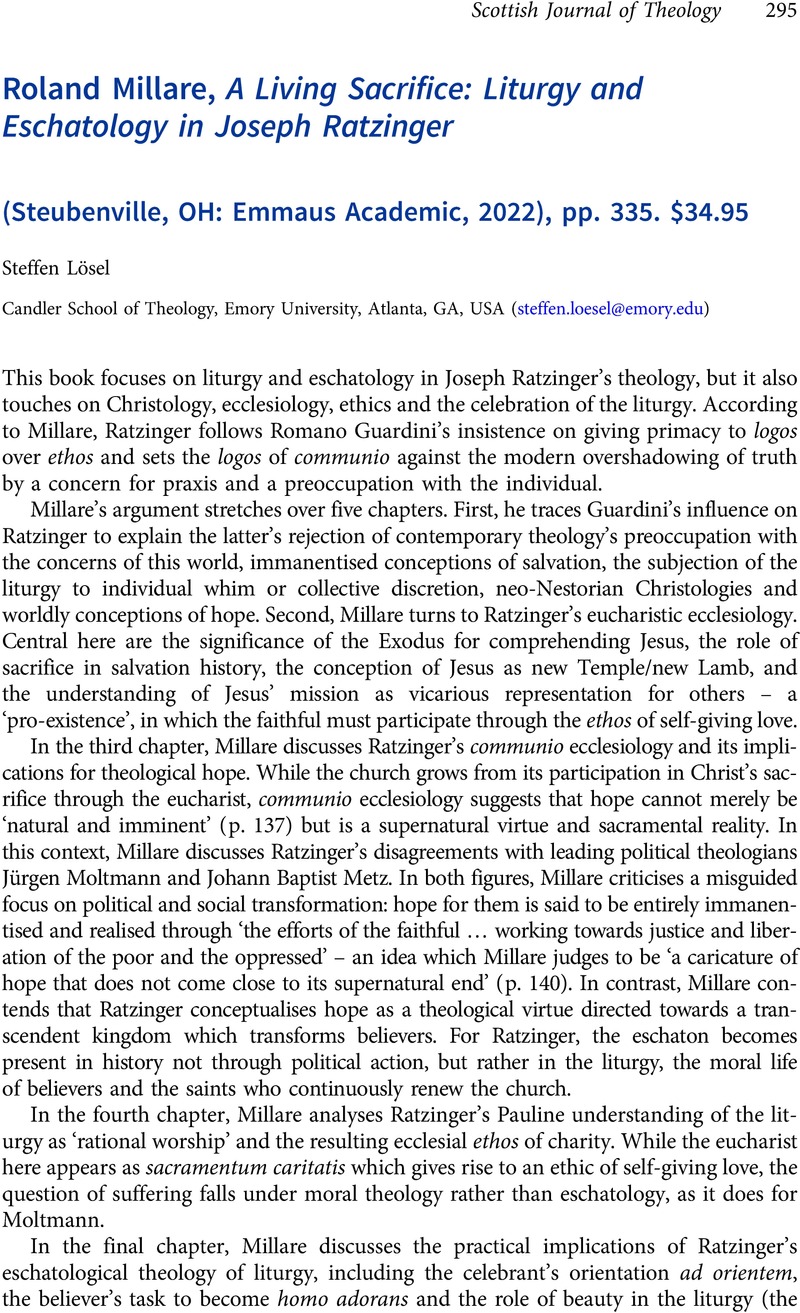No CrossRef data available.
Published online by Cambridge University Press: 16 May 2023

1 Ratzinger, Joseph, Eschatology: Death and Eternal Life, trans. Waldstein, Michael, ed. Nichols, Aidan, O.P., 2nd edn (Washington, D.C.: Catholic University of America Press, 1988), p. 58Google Scholar.
2 Ibid., p. 59.
3 Ibid.